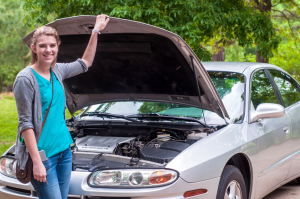 You have already figured out that buying a pre-owned vehicle is a smart way to go. You can save a lot of money on the initial cost of ownership and you won’t have to pay as much as you might think for ongoing maintenance.
You have already figured out that buying a pre-owned vehicle is a smart way to go. You can save a lot of money on the initial cost of ownership and you won’t have to pay as much as you might think for ongoing maintenance.
Avoiding the emotional trap associated with the purchase of a new car can literally save you thousands, if not tens of thousands of dollars. We all know about the emotionally induced extras that typically make the list of things you should not buy at the time of a new car purchase.
Fortunately, there are other lists. The most relevant is a checklist of things you should do before you buy a used vehicle. The fact remains that a pre-owned vehicle is still fraught with emotional destruction. You might err too much on the side of worry and suspicion. That can cheat you out of a good deal as easily as over-exuberance. For best results, make sure to do the following:
Line Up a Few Repair Specialists
No one’s used vehicle is in perfect condition, even yours. A vehicle is used the moment it rolls off the lot. It will never be that perfect again, so be realistic about your expectations.
You wouldn’t want to give up a good deal on a used car because of something minor like a windshield repair. You don’t need a national repair company for such jobs. Local specialists such as Van Isle Glass shop and countless others can make quick work of scratches, cracks, and replacement. But you might want to get to know a good brakes person, and someone who specializes in transmissions. Even if the automobile’s reports turn up rosy, you can expect certain things to go wrong after a certain number of miles.
You will also want to be sure to research the make and model of the vehicle for known maintenance problems. Many of the most sought-after cars in the world have specific quirks that don’t plague other vehicles. Be realistic about the fact that cars need repairs. Know what to expect, and who to call when the expected comes knocking, rattling, or making some other disturbing noise.
Get the VHR
You don’t have to just take the word of the seller. You can get the vehicle history report for just about any used car worth buying. The report can help you figure out the true story behind that deal that seems to be too good to be true. Hint: it probably is.
If the odometer is newer than the rest of the vehicle, you have the only red flag you need. You can find out if the car has been in an accident, and how severe the accident was. You don’t want to buy a car that has been totaled then fixed up to look better than it is.
You can also make sure the service history is what it should be. All cars require a certain amount of servicing over the span of a lifetime. A car that has not been serviced and oiled up to the standard of its make and model is probably hiding problems that you want nothing to do with. Be sure to do your homework before hitting the road with a pre-owned vehicle.
Get a Second Opinion
There are businesses that do nothing but provide the service of inspecting used vehicles to make sure they are a good deal they are advertised to be. The price of these services depend on how far the company has to travel for the inspection, as well as the type and expense of the car.
If you are buying a rare or otherwise exotic vehicle, you want to be absolutely sure it is as advertised. It is no different from having a work of art inspected and appraised before making the purchase.
The second opinion could also be as simple as having a knowledgeable friend go with you to take a look on your behalf. This friend can help you overcome the emotion of the moment and be sure you ask all the right questions.
Used cars can be very smart purchases. Be sure to eliminate costly mistakes by having the right repair specialists on speed dial, checking the vehicle history report, and getting a second opinion.










